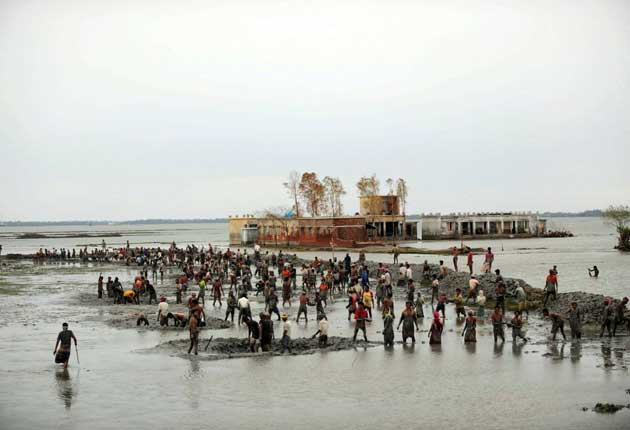A world of opportunity
In a tough job climate, what is it about those with geography degrees that makes them so employable?

Your support helps us to tell the story
From reproductive rights to climate change to Big Tech, The Independent is on the ground when the story is developing. Whether it's investigating the financials of Elon Musk's pro-Trump PAC or producing our latest documentary, 'The A Word', which shines a light on the American women fighting for reproductive rights, we know how important it is to parse out the facts from the messaging.
At such a critical moment in US history, we need reporters on the ground. Your donation allows us to keep sending journalists to speak to both sides of the story.
The Independent is trusted by Americans across the entire political spectrum. And unlike many other quality news outlets, we choose not to lock Americans out of our reporting and analysis with paywalls. We believe quality journalism should be available to everyone, paid for by those who can afford it.
Your support makes all the difference.The news for graduates about their employment prospects may have seemed unremittingly gloomy over the past few months. It is, according to statistics, at its worst level for 17 years. However, hidden in amongst the national statistics, there are some success stories that show all may not be as bad as it seems for everyone who graduated last year. Crucially, it can depend on what subject you studied as to how successful you will be in finding employment after graduation.
One glimmer of light shines in the field of geography: its graduates, it seems, are finding it less difficult to obtain meaningful employment than the rest. The official figures show only 7.4 per cent of them were unemployed six months after graduating – compared with 8.9 per cent of the student body overall. The world may be becoming their oyster as more and more companies see the virtue of having a green eye on board to advise them on environmental hazards.
It was not always thus, of course. In fact, geography had such a low ranking in the eyes of academia that – at my school, a leading independent school, Highgate – you could not even take the subject if you were A-stream material. That was for the more academically challenged, masters would say sniffily, along with woodwork.
It has taken some time to change perceptions. Even two years ago pupils were telling Ofsted, the education standards watchdog, that the subject was "boring and irrelevant". Numbers studying it have risen, though, with 230,000 youngsters opting to take it at GCSE this summer.
The Royal Geographical Society has mounted a campaign to increase the take-up in schools even further with a letter from its president, Michael Palin, to all parents saying: "So many of the world's problems boil down to geography and need the geographers of the future to help us understand them. Global warming, sustainable food production, natural disasters such as earthquakes and tsunamis, the spread of disease, the reasons for migration and the future of energy resources are just some of the great challenges facing the next generation of geographers." He adds: "An A-level in geography is recognised for its academic 'robustness' and, most importantly, it also helps young people into the world of work. You will find geographers in a wide range of jobs, from the City to planning, working in the environment to travel and tourism, or in international charities or retail."
In the past, when times have been hard, economists have looked at businesses with a ruthless lack of sentiment. A decade ago, they would have professed concern for the environment but when the chips were down people in green roles would have been shown the door. Martin Baxter, of the Institute of Environmental Management and assessment, said: "There seems to have been a change in the status of the environmental professional. They are better integrated into businesses."
Don't take his word for it. Listen to Lucy Gosling, a geography graduate from East Anglia now assessing flood risks in new buildings with the Environment Agency. "Today's new developments could be around for 100 years so we need to ensure they're sustainable in terms of flood risk, and geography's at the heart of this," she says.
Some of the geography graduates we have spoken to have not ended up in a job you would associate with the subject. However, they feel the skills they learned in making presentations during their university course and arguing an environmental case help them in whatever they pursue.
Maybe, just maybe, if I were in the A stream at Highgate today they would allow me to take geography.
Join our commenting forum
Join thought-provoking conversations, follow other Independent readers and see their replies
Comments